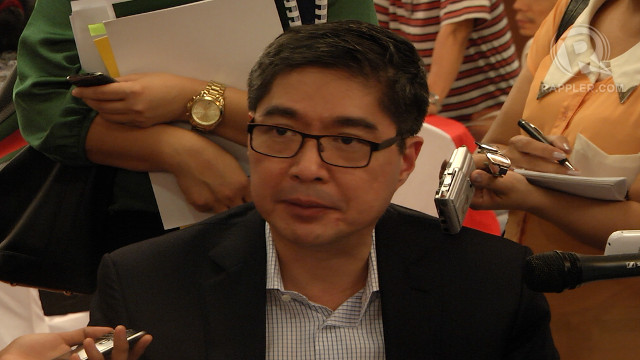SUMMARY
This is AI generated summarization, which may have errors. For context, always refer to the full article.

MANILA, Philippines – The top executive of the Gokongwei-led budget carrier Cebu Pacific, which recently figured in two separate airport incidents, vowed before an audience focused on profits and dividends that safety is top priority.
Cebu Pacific president and CEO Lance Gokongwei stressed this at the company’s annual stockholders meeting on Thursday, June 27.
“June is a difficult month for us but safety has always been the top priority of Cebu Pacific,” he said. The airline is operating on a low-cost model so it could offer low fares.
The budget airline, which dominates domestic passenger traffic, is currently under intense public scrutiny after the Davao airport incident on June 2 and the NAIA incident over a week after.
An Airbus A320-200 aircraft of Cebu Pacific carrying 165 passengers skidded off the runway of the Davao international airport amid bad weather, resulting in a 2-day closure of the 3rd busiest airport in the country.
No one was hurt when the plane ended up in the grassy part of the runway, but passengers complained of the long time it took the cabin crew to deplane them.
Gokongwei said the incident led the airline to heighten its focus on safety as its highest priority.
“First thing we have to do is make our safe airline safer. We have no other considerations,” Gokongwei added.
Back to school
On Tuesday, June 25, the country’s local aviation regulator Civil Aviation Authority of the Philippines (CAAP) suspended the two pilots manning the aircraft that featured in the Davao incident.
Cebu Pacific itself was not sanctioned but vowed to increase its safety standards and pilot training activities.
The company said they are complying with CAAP’s recommendations and initiated several self-imposed measures to ensure the incident will not happen again.
“We’re going to do a random audit on our pilots and they are going to send inspectors as well on our aircrafts,” Gokongwei said.
“The goal really is to enhance capabilities by beefing up our (aviation) curriculum. We will do it in the next 3 months but we will still push with the regular recurrent training every 6 months. We’ve asked Airbus to help us in enhancing flight operation structures on safety as well as the human factor,” he added.
He also explained Cebu Pacific pilots undergo recurrent training every 6 months. Part of the training is an 8-hour refresher on the company’s two simulators.
Expansion plans
Meanwhile, Gokongwei said they are on track in beefing up the current fleet from 43 Airbus aircraft in early 2013 to about 62 units by 2017.
“We are continuing the refleeting program and we expect deliveries of several Airbus aircraft this year and the next coming years,” he said.
Among the expected Airbus unit to be delivered include:
- 3 Airbus A320s in the second half of 2013
- 2 A330s in 2014
- 5 Airbus A320s in 2014
- 9 A320s between 2015 and 2017
- 30 A321neo (new engine option) aircrafts between 2017 and 2021
The budget airline has a fleet of 43 comprised of 25 Airbus A320s, 10 Airbus A319s and 8 ATRs. – Rappler.com
Add a comment
How does this make you feel?
There are no comments yet. Add your comment to start the conversation.